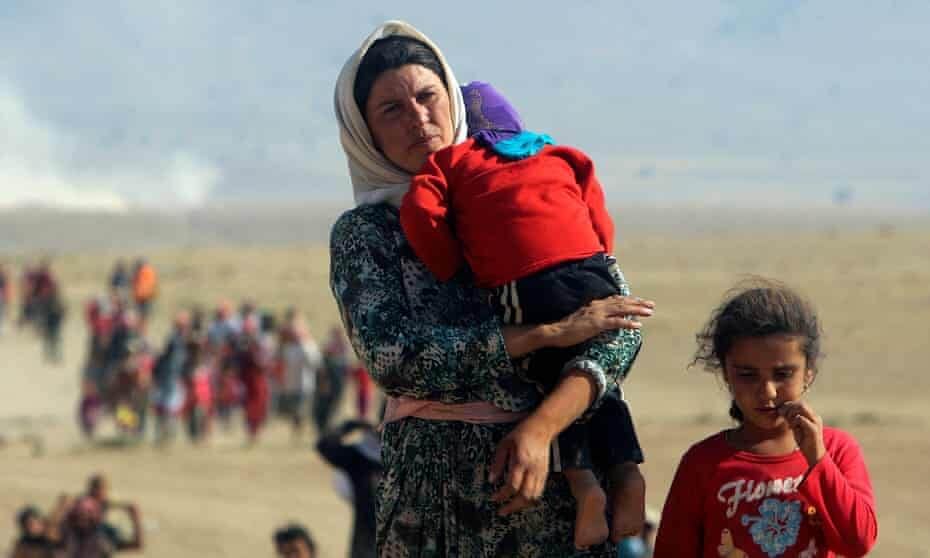Yazidi refugees were forced to flee from their camps in Zakho, Iraqi Kurdistan on Tuesday due to relentless Turkish bombardment against Kurdistan Worker’s Party (PKK) militants in the region. The Yazidis were initially displaced from Shingal in Iraq’s Nineveh province in 2014 due to atrocities committed against them by the Islamic State.
As per reports, more than 3,000 people abandoned their camps—Bersive 1, Bersive 2, and Derkar—due to Turkey’s offensive. “War happens every day, with constant airstrikes. We are very scared. Each of us has struggled with mental health issues at some point,” one of the refugees who fled Zakho told Rudaw. The news agency reported that Turkish airstrikes take place daily and threaten to destroy the livelihoods of people.
The Yazidis are a religious minority in the Middle East and primarily concentrated in Iraq, Syria, and Turkey, especially in the Iraqi provinces of Nineveh and Duhok. The IS targeted them in 2014 due to their religious beliefs, and mass atrocities were committed against the Yazidi community by the terrorist group.
According to the United Nations (UN), ISIS murdered more than 5,000 Yazidis, abducted and enslaved almost 7,000 Yazidi women and children, and evicted around 50,000 from their homes. In May, the UN confirmed that it had found evidence of genocide committed against the Yazidis.
The Turkish military’s airstrikes in Iraq have also led to significant environmental damage in the region. As per reports, airstrikes in Duhok on Tuesday led to a massive fire that destroyed thousands of acres of cultivable land. An official stated that more than 4,000 acres of land were destroyed due to Turkish airstrikes in the first five months of 2021.
Turkey’s bombing campaign against the PKK in Kurdistan has also resulted in large-scale deforestation. Locals claimed that Turkey intentionally deforests the area to make more accessible paths for its troops to conduct military operations.
Also Read: Iraq Expresses Concerns Over Turkish Military Activity Against Kurdish Militants
In this context, the Kurdistan Regional Government (KRG) spokesperson Jotiar Adil said the Turkey-PKK conflict would damage the Kurdistan Region. “We believe that this force’s presence serves as an excuse for the Turkish military, and the main objective of it in our opinion is to weaken the Kurdistan Region as an entity,” Adil said, adding that “The cause of the PKK is not in Kurdistan Region or Iraq. It is in Turkey. Their presence here has a political reason, and in our opinion, their policies are against the Kurdistan Region.”
Turkey has increased its military operations against the PKK, especially since January. On April 24, Turkish President Recep Tayyip Erdoğan announced the launch of operation Claw Lightning and Claw Thunderbolt to eliminate “terrorist threats” from Iraq and Syria. He said, “We are determined to eradicate terror and rid our citizens of the terror scourge completely.” Turkish forces have been bombarding Kurdish villages as part of the operations and killed 44 PKK militants in May.
Both sides have been waging a decades-old war against each other. While the PKK claims that it is fighting for Kurdish sovereignty, Ankara insists that the group is a “terrorist” organisation and needs to be eliminated. The PKK is also labelled as a terrorist group by the United States (US) and the European Union (EU) and is known for launching attacks against Turkey from its bases in Syria and Iraq.

